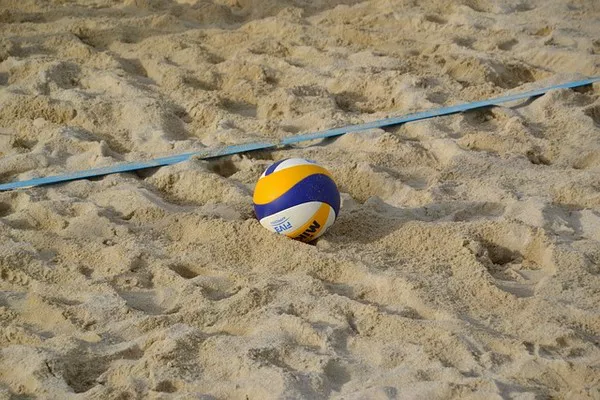Volleyball is a dynamic and fast-paced sport that requires a combination of skill, strategy, and teamwork. Winning a volleyball set is not solely dependent on individual prowess but also on effective coordination and execution of strategic plays. In this article, we will explore key strategies that teams can employ to secure victory in a volleyball set.
Effective Communication:
Communication is the backbone of any successful volleyball team. Players must communicate efficiently and cohesively to ensure everyone is on the same page. Clear and concise communication helps in coordinating movements, calling out plays, and reacting swiftly to the opponent’s actions. Establishing a system of signals and verbal cues can enhance communication on the court, promoting a seamless exchange of information among team members.
Strategic Serving:
Serving is the initial opportunity to put pressure on the opposing team. A well-executed serve can disrupt the opponent’s rhythm and create opportunities for scoring. Coaches often emphasize the importance of diverse serving strategies, including the powerful jump serve, float serve, or strategic placement. Players should practice a variety of serving techniques to keep the opposing team guessing and capitalize on their weaknesses.
Efficient Passing and Setting:
Accurate passing and setting lay the foundation for successful attacks. Players should focus on mastering the fundamentals of passing, ensuring that the ball reaches the setter with precision. Additionally, setters play a crucial role in dictating the pace and direction of the game. Quick and precise sets enable hitters to execute powerful attacks, catching the opposing team off guard.
Versatile Attacking:
A dynamic offense is key to winning volleyball sets. Teams should diversify their attacking strategies, incorporating a mix of powerful spikes, well-placed tips, and strategic dinks. Hitters must be adaptable and capable of adjusting their approach based on the opponent’s defensive formation. Coaches can encourage players to develop a range of attacking techniques, fostering a well-rounded offensive game.
Solid Blocking:
An effective blocking strategy can disrupt the flow of the opposing team’s offense. Timing and positioning are crucial for successful blocks. Players should work on reading the opponent’s intentions, anticipating their movements, and closing the block effectively. Well-coordinated blocking not only prevents the ball from crossing the net but also demoralizes the opposing team, creating a psychological advantage.
Strategic Substitutions:
Coaches play a critical role in determining when to make substitutions to maximize the team’s performance. Timely substitutions can inject fresh energy and specific skills into the lineup, disrupting the opponent’s game plan. Coaches should analyze the strengths and weaknesses of both teams to make strategic substitutions that align with the match situation.
Mental Toughness:
Volleyball is as much a mental game as it is physical. Maintaining composure during high-pressure situations, such as close sets or match points, is essential. Teams should practice mental resilience through simulations of high-stakes scenarios in training. Developing a strong team mentality and fostering a positive atmosphere on and off the court can significantly contribute to success in crucial moments.
Adaptability:
Flexibility is a hallmark of successful volleyball teams. As the dynamics of a game can change rapidly, players and coaches must be adaptable. Being able to adjust strategies based on the opponent’s strengths and weaknesses, as well as responding to unforeseen challenges, is crucial for consistent performance.
Scouting Opponents:
Thoroughly researching and understanding the strengths and weaknesses of opponents is a fundamental aspect of strategic play. Coaches should invest time in scouting rival teams, analyzing their playing styles, key players, and preferred strategies. Armed with this knowledge, teams can develop counter-strategies to exploit weaknesses and neutralize the opponent’s strengths.
Consistent Focus on Fundamentals:
While advanced strategies are important, mastering the fundamentals remains the bedrock of success in volleyball. Regular practice sessions focusing on passing, setting, serving, and communication ensure that players maintain a strong foundation. Consistent reinforcement of these basic skills contributes to overall team cohesion and performance.
See Also How To Set Up A Volleyball Court
Conclusion:
Winning a volleyball set requires a holistic approach that combines technical proficiency, strategic thinking, and effective teamwork. By prioritizing communication, diversifying serving and attacking strategies, focusing on mental toughness, and staying adaptable, teams can position themselves for success on the volleyball court. Coaches play a pivotal role in shaping these strategies, providing guidance, and fostering a culture of continuous improvement. Through a combination of skill development and strategic planning, volleyball teams can elevate their game and increase their chances of emerging victorious in every set.


